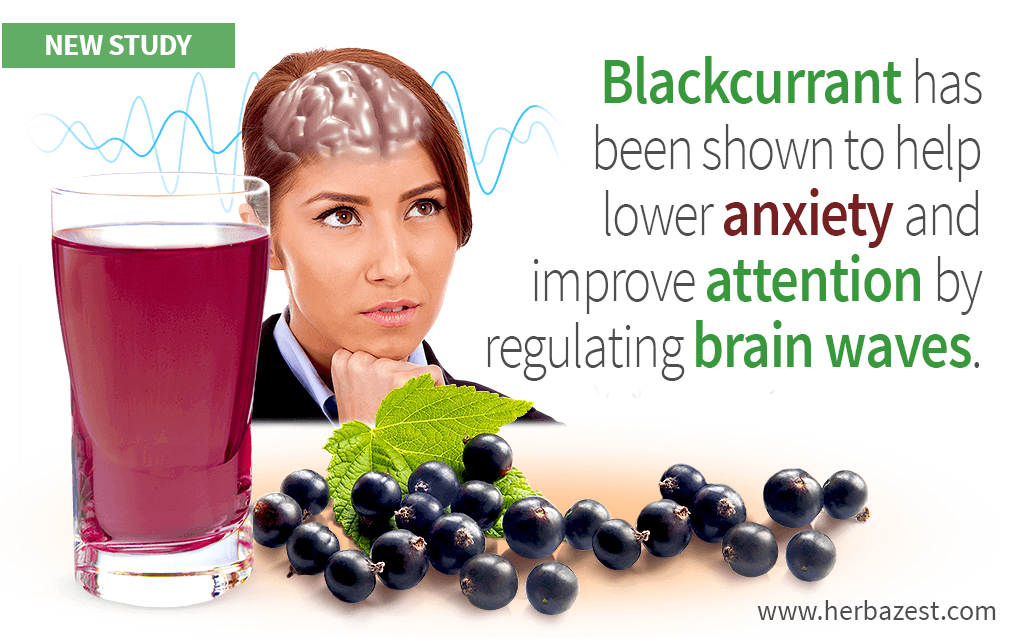While it is widely consumed in Europe, blackcurrant is not as popular in North America, mostly due to long time restrictions for its cultivation and trade. However, it is believed that it possesses neuroprotective and nootropic properties, which are attributed to the combined action of powerful phytochemicals, such as anthocyanin, caffeic acid, catechin, quercetin, kaempferol, and tannins.
As this berry has not been extensively studied, this human trial sheds new light on the benefits of consuming blackcurrant juice by linking it to a reduction of anxiety and an improvement in cognitive functions.
The Study
Brain waves make neural development possible in infants and children and allow neuronal connections in adult life. Thus, cognitive activities greatly depend on their well-functioning. Imbalances in brain waves have been linked to anxiety and other cerebral dysfunctions.
During this double-blind trial, conducted in Newcastle University (United Kingdom), nine healthy young adults were given anthocyanin-rich blackcurrant juice containing 500 mg of polyphenols or a placebo. Oscillations in brain waves, related to wakefulness and sleep, were measured using electroencephalography (EEG) before and after the volunteers drank the beverages.
The Results
After a single serving of blackcurrant juice, the EEG showed a suppression of alpha waves (more prominent during wakefulness) and an increase of delta and theta slow waves, which typically appear during deep sleep. These changes produced an anxiolytic effect, while a rise of beta waves, which generally occur as a response to external stimuli or specific mental effort, was connected to an enhanced state of alertness and lower fatigue.
What Does this Mean?
The positive influence of berries on the human brain has been suggested many times by scientific studies, and it is popularly assumed that fruits high in phenolic acids, especially the dark ones (e.g., blueberries and blackberries), provide the most benefits.
In spite of the small sample, the results of this trial are promising as they lead to a better understanding of the mechanisms of action of plant compounds upon brain functions. While further studies are necessary to corroborate these findings, current evidence supports the consumption of blackcurrant juice to enhance cognitive functions and reduce anxiety.
Sources
- Basic and Clinical Neuroscience, Effects of Increase in Amplitude of Occipital Alpha & Theta Brain Waves on Global Functioning Level of Patients with GAD, 2015
- Nutritional Neuroscience, The impact of blackcurrant juice on attention, mood and brain wave spectral activity in young healthy volunteers, 2018
- Pediatric Research, Brain waves and brain wiring: the role of endogenous and sensory-driven neural activity in development, 1999
- Westminster College, The Measurement of Brain Waves




